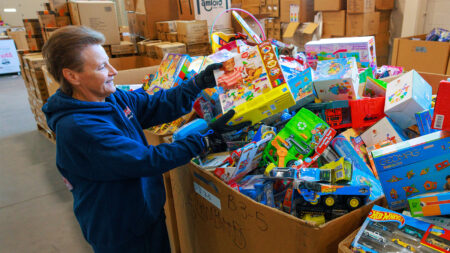In our quest to build NEPA’s most comprehensive nonprofit directory, we discovered hundreds of incredible organizations. We’re eager to share their inspiring stories.
In this series, we spotlight hardworking organizations, dedicated volunteers, and compassionate individuals who make a difference. We hope these stories inspire you to join us with your time, hands, and hearts. Follow along as we delve beyond the mission statement.
Building Stronger Communities Together
For over 100 years, United Neighborhood Centers of Northeastern Pennsylvania (UNC) have been dedicated to helping families and individuals in Lackawanna County not just survive, but thrive. They’ve impacted thousands of lives across Scranton, and they’ve done so with compassion, treating each person like family, with dignity and care.
A Rich History of Service
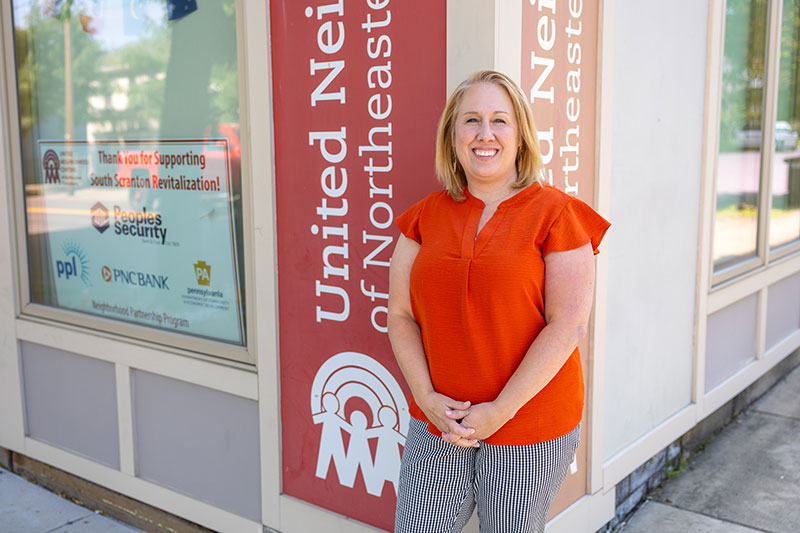
UNC started in 1923 when members of Bethel Church opened a small settlement house to serve the needs of African Americans in center-city Scranton. The following year, another settlement house opened to serve the new immigrant population living in the lower west side of Scranton. The two centers merged in 1970 to form what is now UNC.
Over the years, the organization has evolved and grown, adapting to the ever-changing needs of the community, but its core mission remains the same: to work together with neighbors to provide services and create opportunities to empower individuals and build strong, interdependent communities.
They make asking for help dignified and incredibly easy. Anyone can walk into one of their centers and be connected immediately with a case worker who will work one-on-one to meet their needs.
“People walk into our Community Service Center (on Olive Street) daily and can get food, clothing, or register on the spot to meet with a housing counselor,” says Chrissy Manuel, Director of Development and Communication at UNC. “If they’re in danger of eviction or need help with bills, someone will sit down with them right then.”
At UNC, the staff goes above and beyond meeting the immediate needs that brought a person in and assesses their entire situation, offering services that can set them up for success.
“There are so many steps you have to take to get your needs met, and we provide a very personal touch,” says Chrissy. “Almost everything we do involves working with a case manager, so you have someone advocating for you and helping you move toward independence. It’s a level of personal support that you might not always get from large government agencies. That personal connection really makes a difference.”
Support For All Ages
UNC offers a wide range of programs for individuals across the lifespan, from young children to older adults. Whether it’s helping families access food, providing after-school care for children, assisting with housing, offering English as a Second Language courses, or creating a welcoming space for seniors, UNC has a program to help.
Community Services
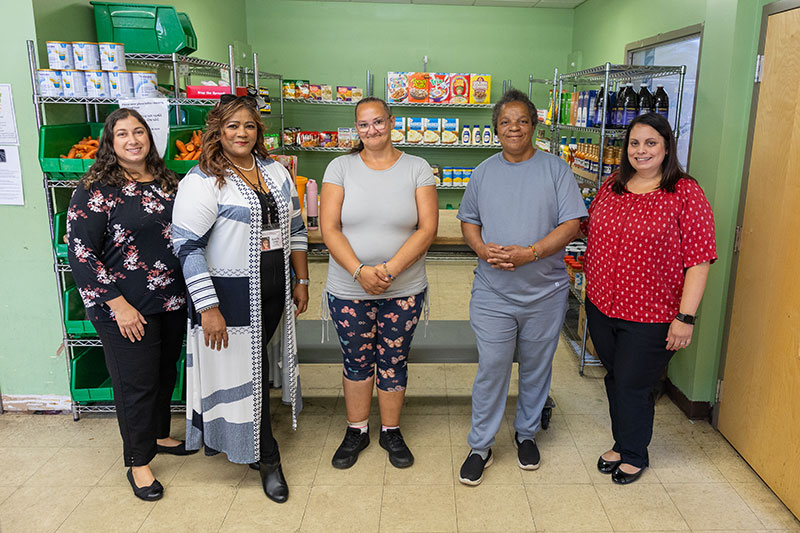
One of the most pressing challenges facing individuals and families in the region is economic insecurity. UNC’s Community Services division provides critical assistance to those in need, helping them meet their basic necessities, from food and clothing to affording housing, emergency shelters, and rental assistance. Their case managers work closely with clients to develop long-term solutions, including access to affordable housing, employment resources, and financial literacy training.
Angel’s Attic Clothing and Food Bank provides essential groceries and second-hand clothing at no cost. Through partnerships with the CEO/Weinberg Food Bank, local grocery stores, food drives (including WNEP’s Feed-A-Friend), and community donations, families struggling with food insecurity have a place to turn for help.
“We served more than 10,000 families through community services last year,” emphasizes Chrissy. As many as 300 people visit their crisis services centers per day. In 2023, they helped 4,340 new clients and distributed 41,906 bags of food.
Community Education

UNC is a bridge to a better future for many, including new community members and immigrants. Their community education programs include English as a Second Language (ESL) classes, family literacy programs, citizenship preparation classes, and workforce development, all aimed at helping people improve their quality of life, increase self-sufficiency, and integrate more fully into the community.
In 2023, UNC served 414 English language learners from 65 countries who speak over 20 languages.
Senior Support
With the goal of ensuring seniors remain active, engaged, and connected to their community, UNC senior centers offer activities that promote physical and mental well-being, from exercise classes and social gatherings to educational workshops and arts activities.
Community Revitalization
UNC is deeply involved in community development efforts, working to revitalize neighborhoods, create affordable housing, and promote economic development. Their work has led to the transformation of numerous neighborhoods, including their current project: re-envisioning the Pine Brook neighborhood section of Scranton. In two years, the designated Elm Street Program has implemented façade projects, enhanced public spaces, and fostered community involvement, with over 300 volunteers working to revitalize their community.
Farmers Markets
UNC’s South Side Farmers Market and Carbondale Farmers Market provide fresh, locally grown produce to residents while supporting farmers. The markets make healthy, affordable food more accessible, especially in underserved areas, and accept SNAP/EBT benefits with Food Bucks incentives, allowing families to stretch their dollars.
Youth Programs
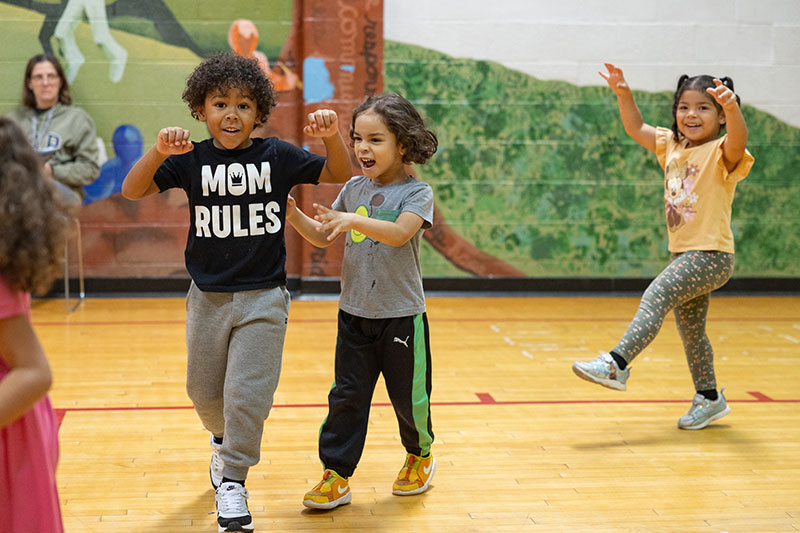
UNC is committed to providing children and teenagers with the tools and support they need to succeed. The Youth Program offers educational, recreational, and social enrichment opportunities through after-school programs, tutoring, summer camp, and the Leaders in Training program for young people from disadvantaged backgrounds. UNC also operates three Keystone 4-star child care centers that provide quality, affordable child care as well as before-and-after care services to local families.
Get Involved
United Neighborhood Centers is able to help so many thanks to the support of dedicated volunteers and generous donations from the community. There are a number of ways to get involved, such as volunteering as an ELA tutor, attending events like their upcoming Chocolate and Wine Frolic, offering financial support, or donating food and clothing to Angel’s Attic. Every little bit helps UNC continue its mission of building stronger communities, one person at a time.
“We can find a volunteer opportunity for you, no matter what your interests are,” says Chrissy. “We’ll find a way to connect you with something you’re passionate about that will serve the organization.”
United For The Future
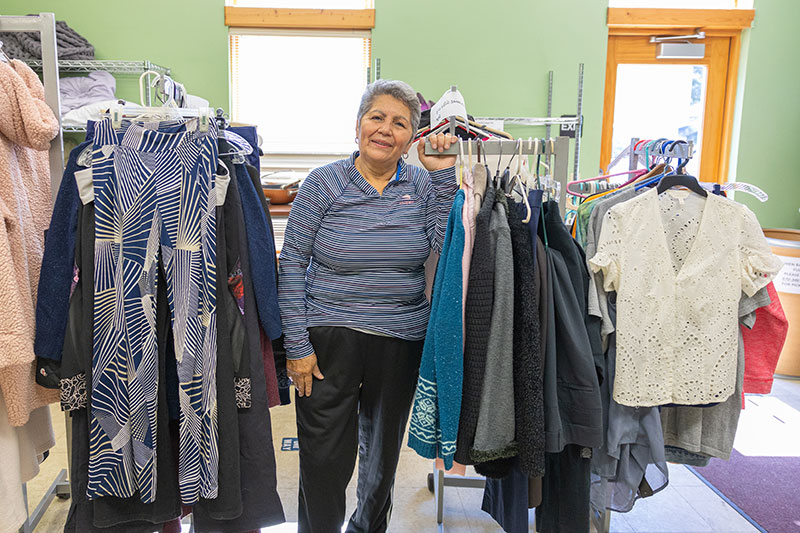
UNC is passionate about inclusivity, working to ensure that everyone, regardless of background, has access to the resources and opportunities they need to thrive. They have created an environment where everyone feels welcomed and valued.
“One of the most important things to know is that we’re a friendly organization,” emphasizes Jessica Wallo, Director of Community Services. “When I say people are joining the UNC family, that’s truly what it is. It’s hard to define our work—not just because we do so much, but because there’s always more we can do. We focus on critical thinking, thinking outside the box, connecting with resources, and collaborating with our community partners.”
Their work goes beyond addressing a single issue. If there’s one problem, they understand there could be five more that someone hasn’t realized yet.
“It’s important for us not only to help with that one problem but to figure out how we can help the others as well. And we provide a welcoming environment—there’s no shame in coming to us for help, because many of us have been there before. We’re here to lift others up and empower them.”
Connect with United Neighborhood Centers of Northeastern Pennsylvania
For more information on how you can get involved or take advantage of UNC’s services, visit their website or stop in one of their Scranton locations.







